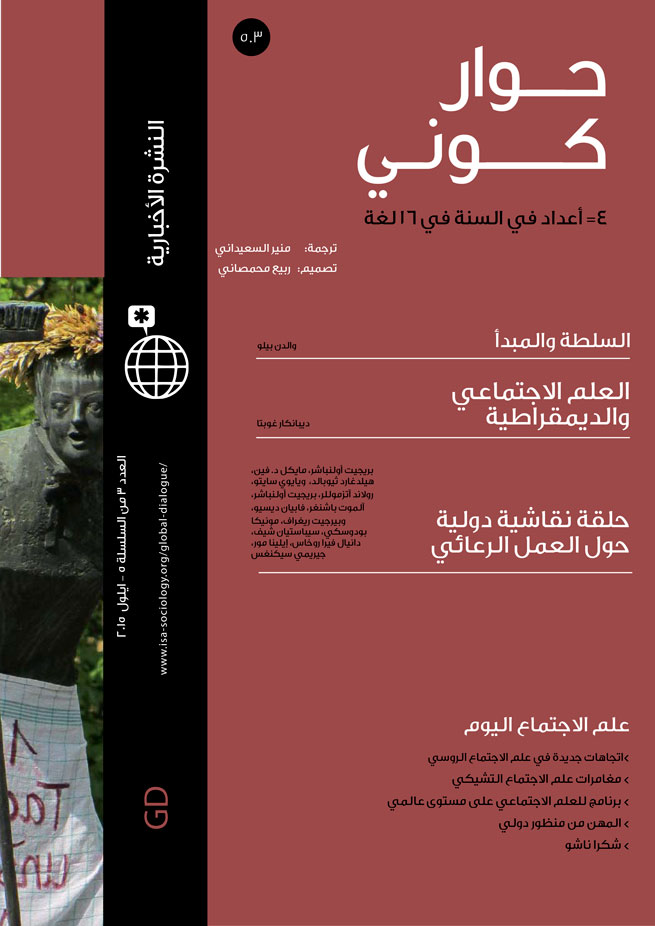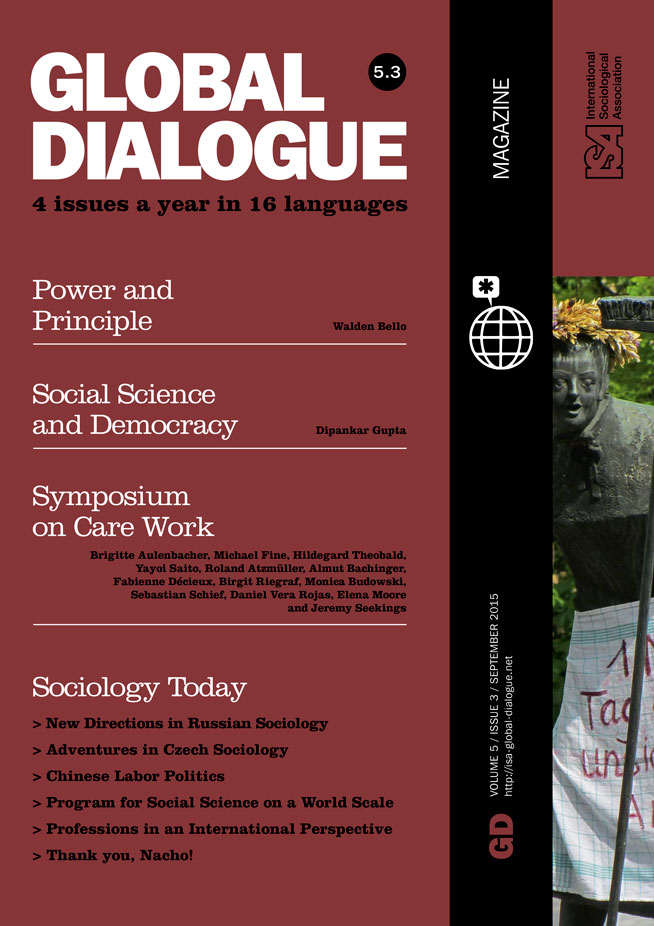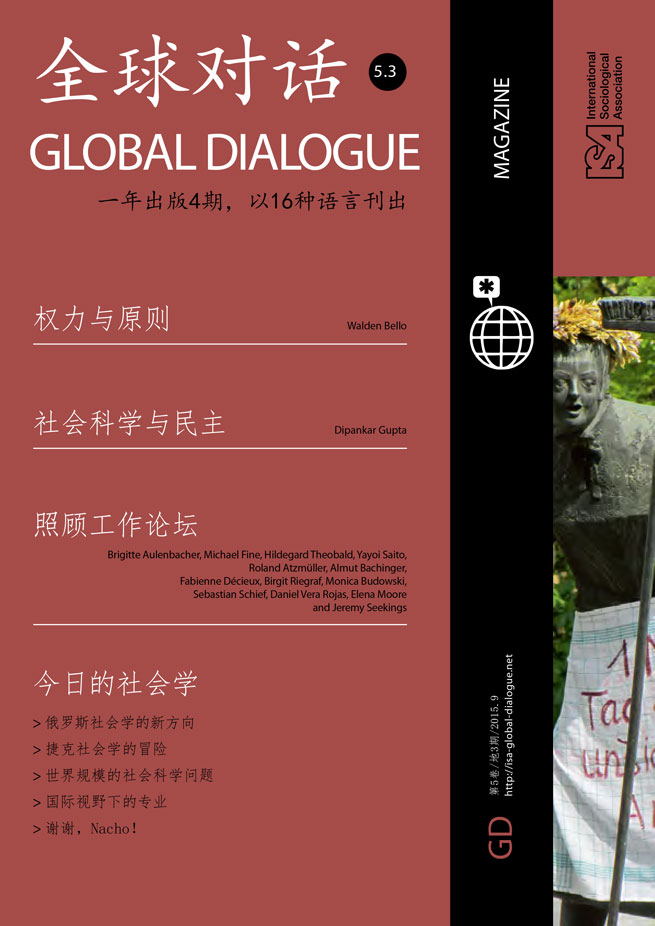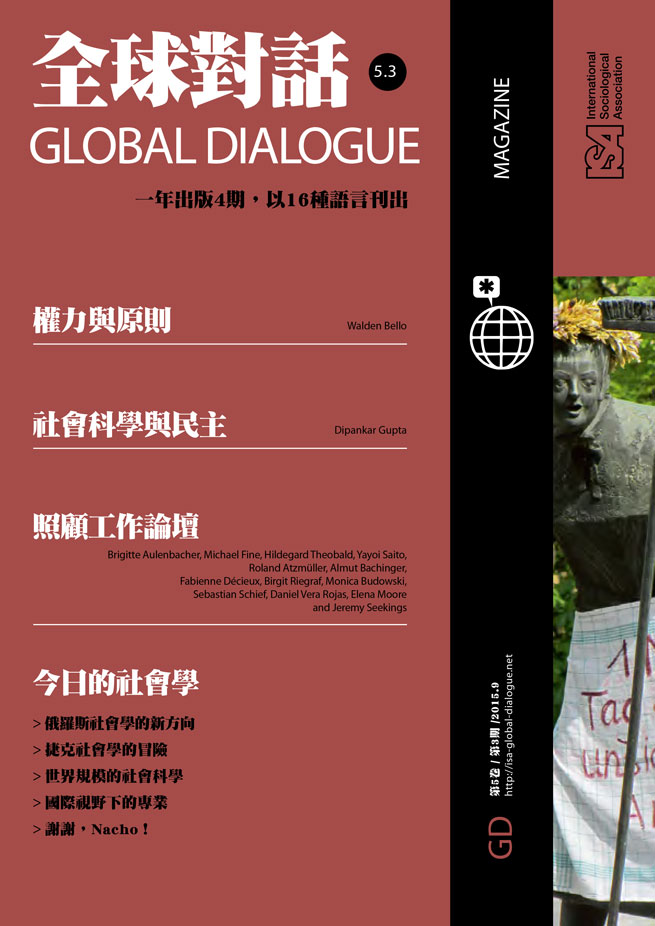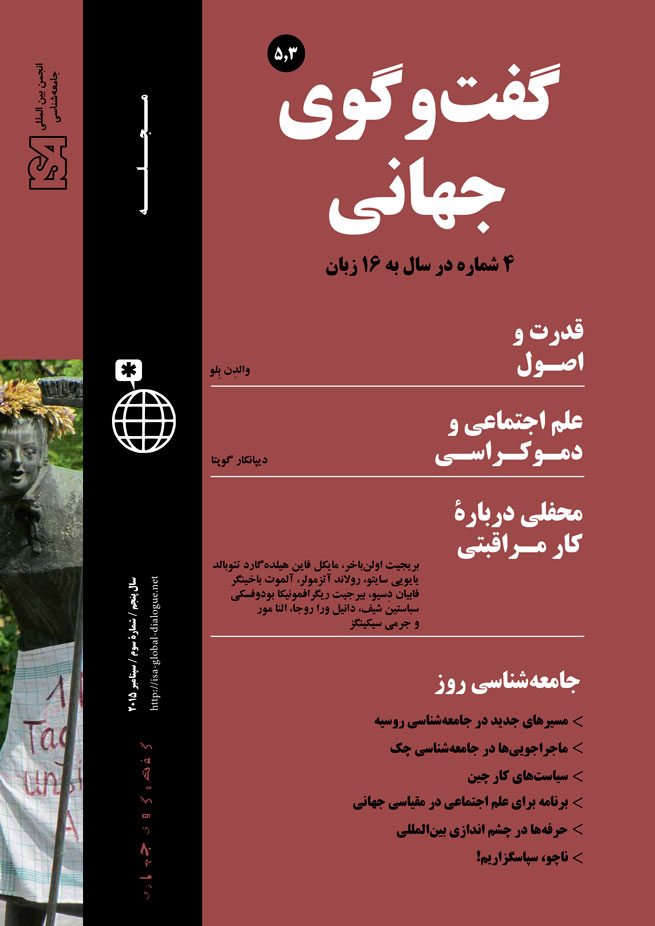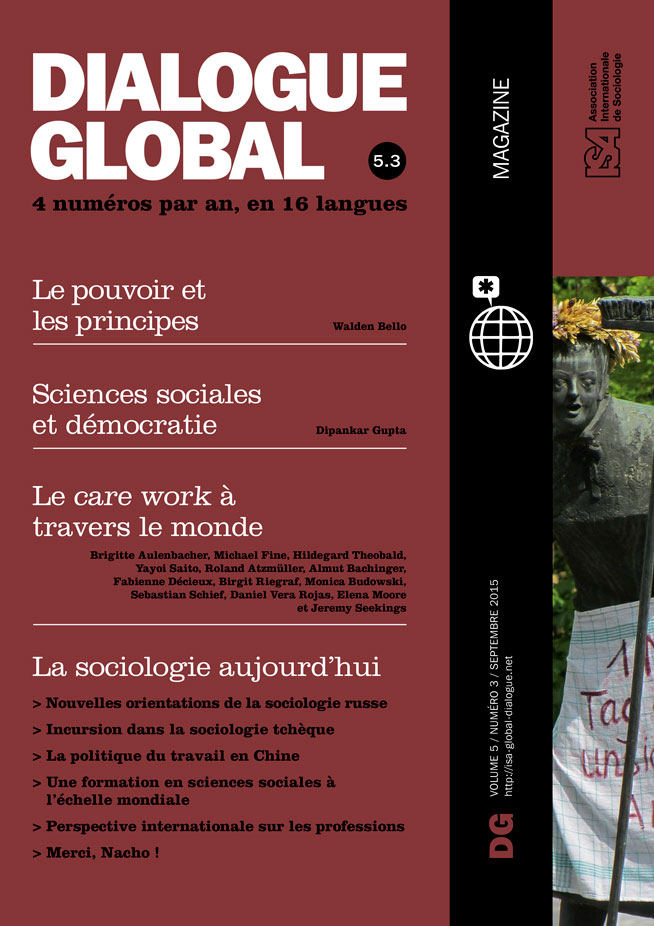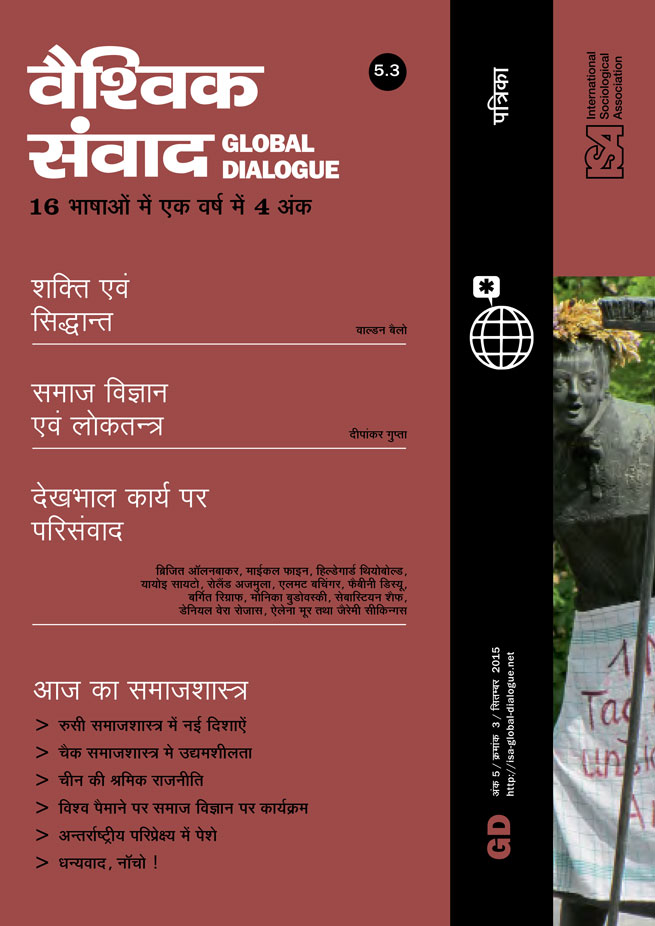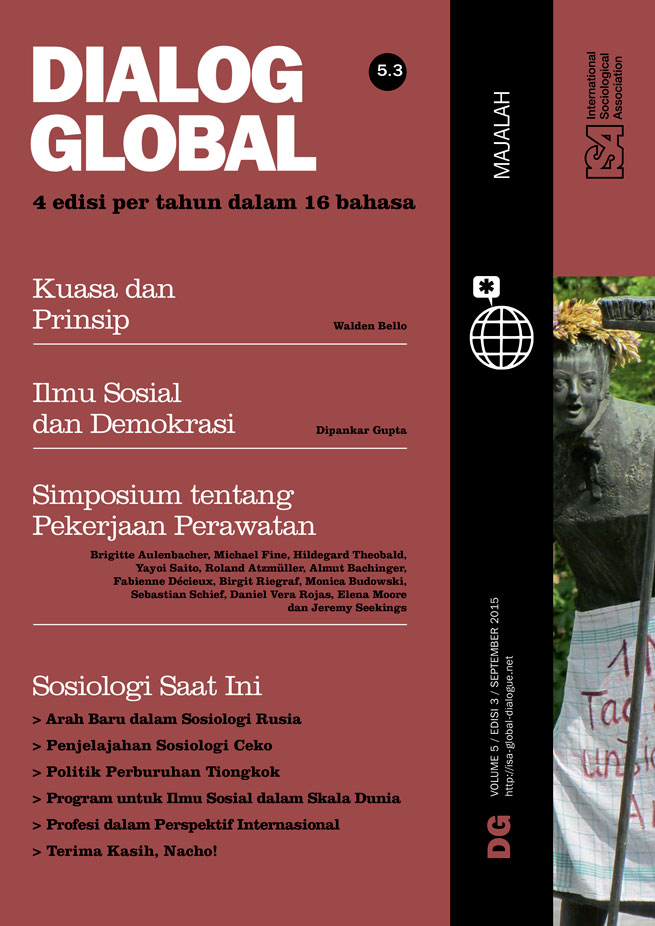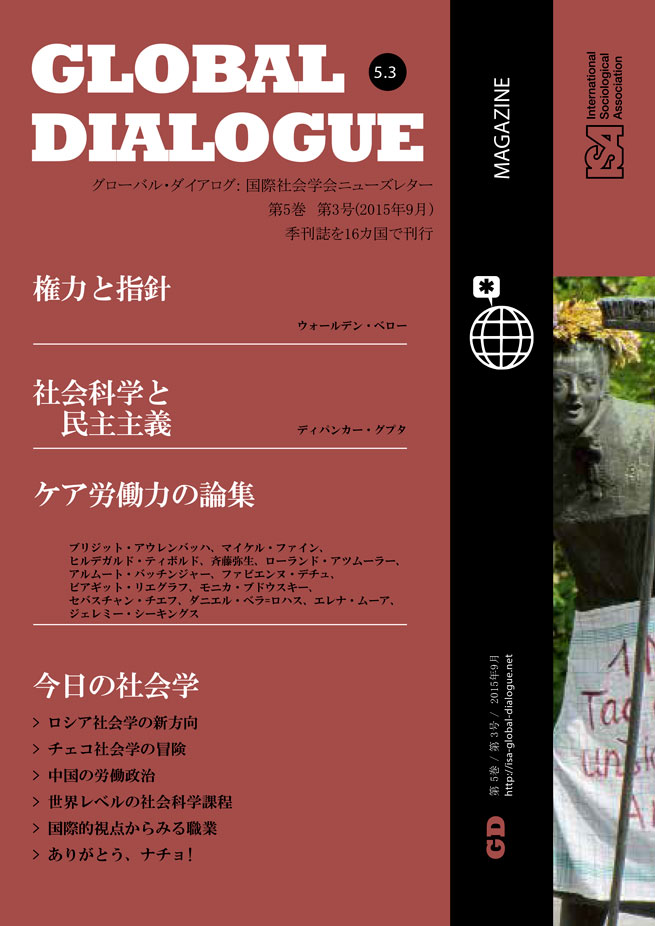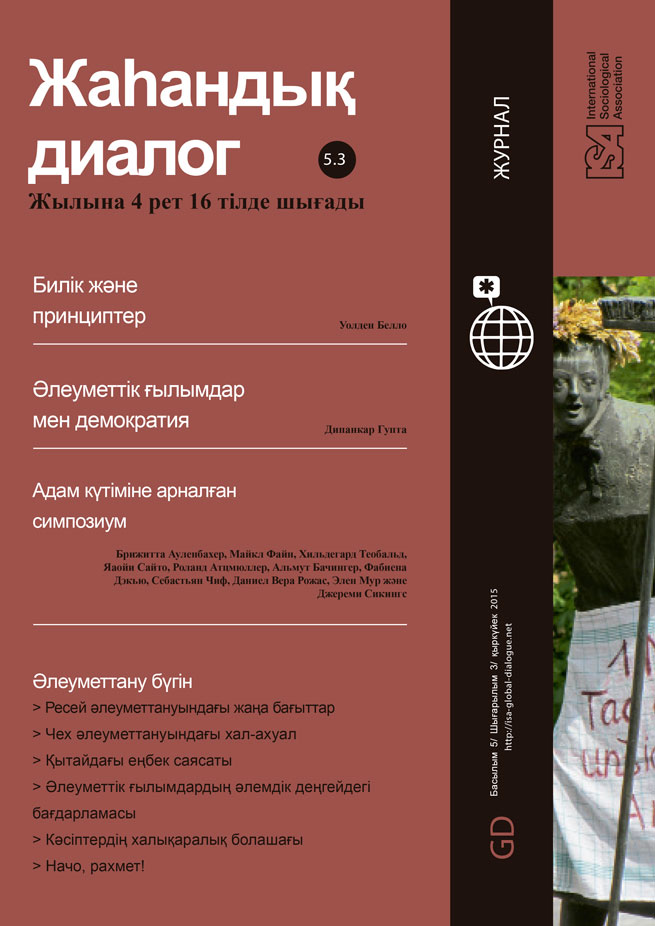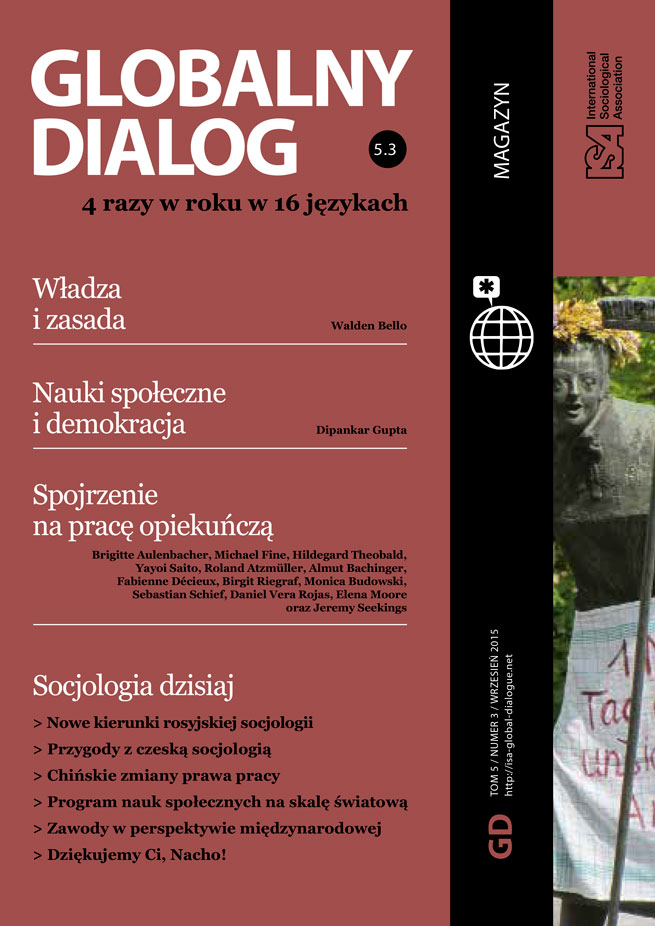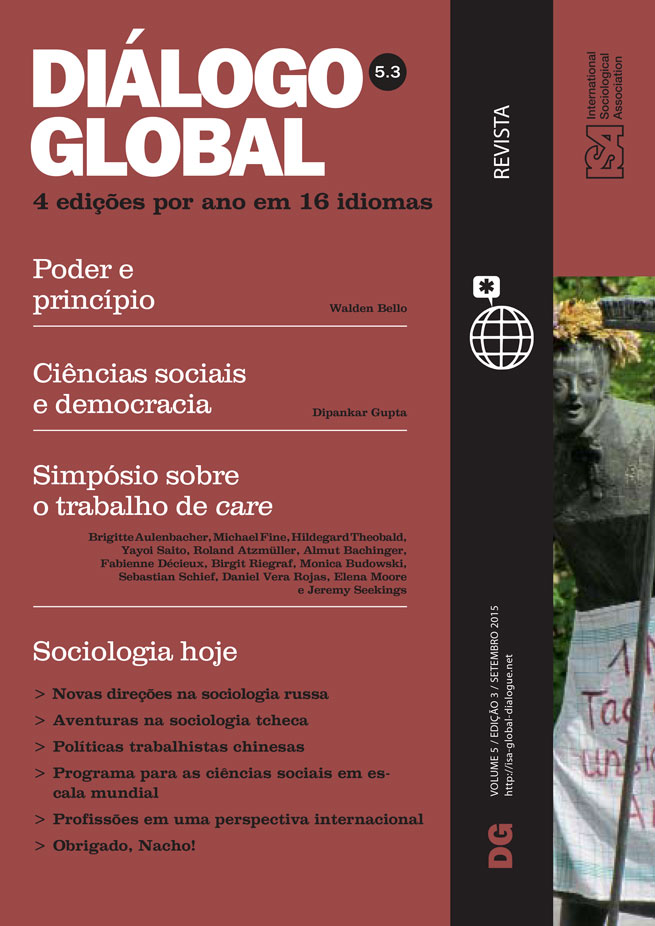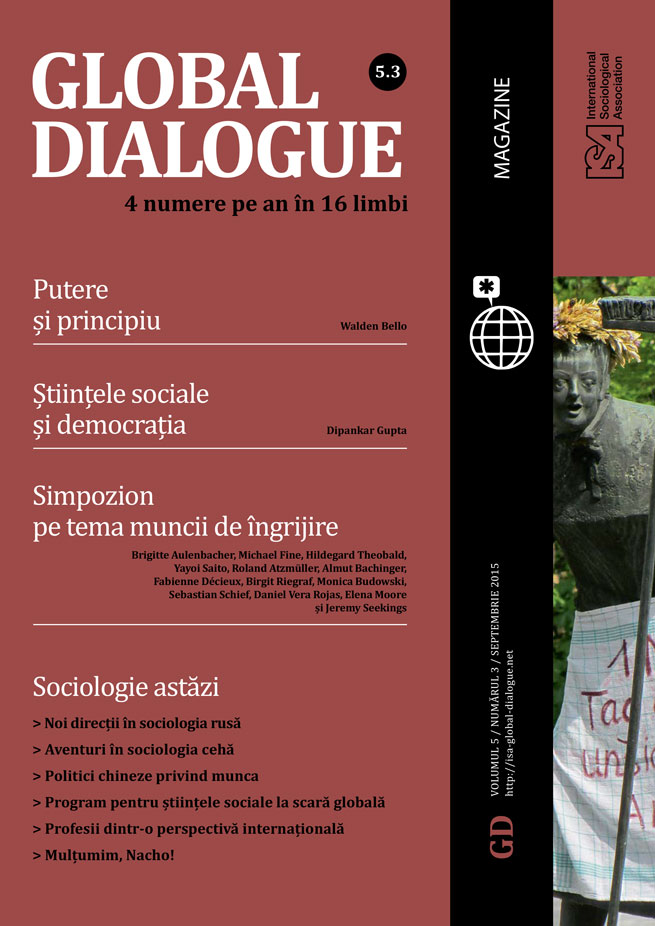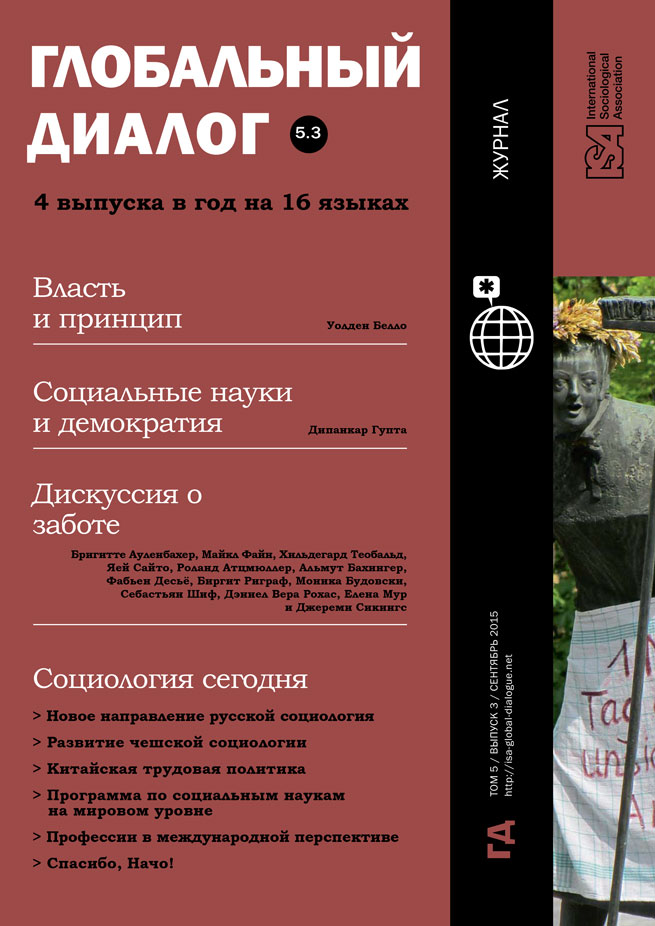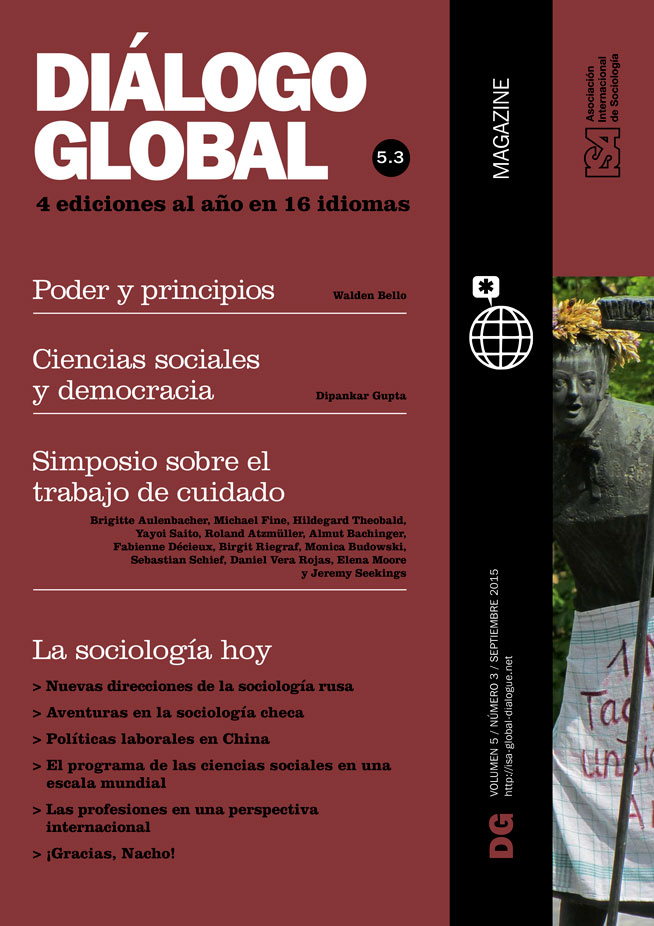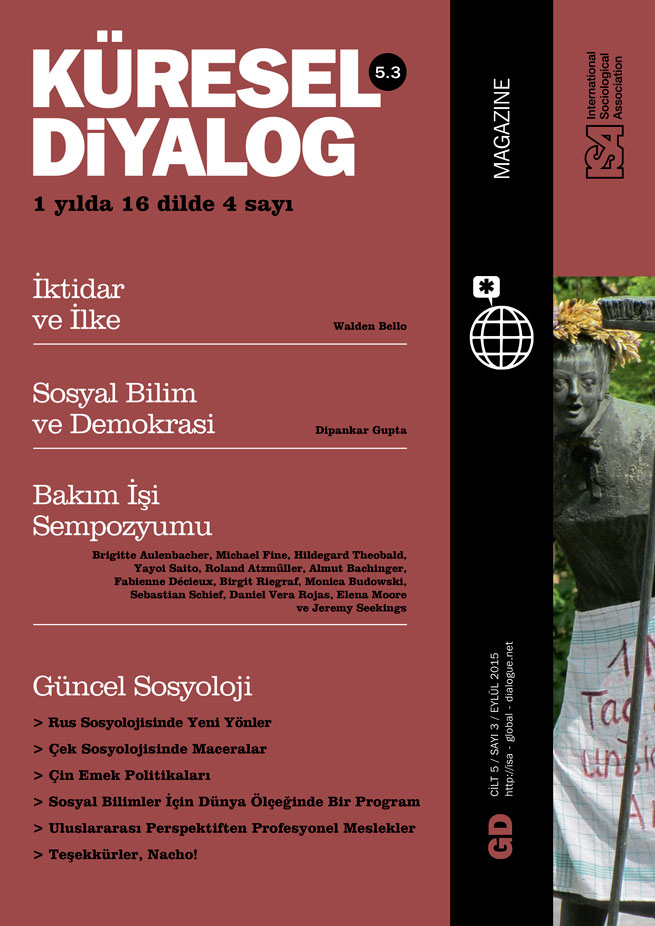Read more about Adventures in Czech Sociology

Remembering Roma Workers in the Czech Republic
by Kateřina Janků
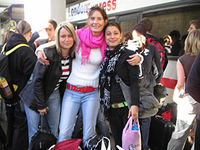
Au pair Migration as a Rite of Passage
by Zuzana Búriková
August 08, 2015
For the last two decades, the school performance of Czech pupils has steadily declined, according to various international means and measures (e.g. PISA standards) – a fact that has provoked a national debate about education, its role, directions and methods. Dissatisfied not only with comparative standards but with broader social issues, such as lack of an individual approach and lack of freedom of choice in compulsory education, parents say that they are generally dissatisfied with a predominant lifestyle, in which work and schooling separate parents from their children from a very early age.
After the communist era – decades of suppressed individualism – some Czechs have argued that individuals must take responsibility for themselves and their families. Post-communist governments have opened up new possibilities in several areas of the social sphere, including education. As a result, homeschooling has been introduced as one of several educational alternatives.
In practice, Czech homeschooling is quite varied, ranging from unschooling – a child-led learning philosophy – to the strict pursuit of the official school curriculum in the home environment. Although there is some evidence of increasing demand among the Czech parents for this educational possibility over the last ten years, it remains a minority practice, involving less than one percent of school-age children.
During the communist era (1947-1989) students had no choice but to attend state-run schools through the nine years of compulsory education. There were simply no alternatives. Thus, almost all current Czech parents (aged 30 and older) were themselves educated in the communist ideology, stressing equality, similarity, conformity and uniformity.
For many parents, then, homeschooling is a new phenomenon, and seems to be a truly revolutionary idea. After some well-educated parents who had lived abroad lobbied forcefully for it, homeschooling was legally established as a child’s and parent’s right in 2005.
Under the new law, parents have a right to educate their child at home, albeit only through primary school (grade 1 to 5). Legally binding conditions include a teacher-parent with at least a high school diploma, and a letter of support from a state-run Pedagogical-Psychological Advice Bureau. Teacher-parents must explain why they want to teach the child at home, and must demonstrate a satisfactory learning space (meaning suitable furniture, environment and space in the flat). The child must take official school exams at least twice a year.
The law offers freedom in education, but at the same time it shows the state’s desire to control this freedom as much as possible, by requiring that parents demonstrate cultural as well as financial capital. Both parents and children must undergo testing by a Pedagogical-Psychological Advice Bureau, which acts as the state’s gate-keeper and has sanctioning power. Some parents report they had to visit several Advice Bureaus in order to gain the necessary certificates.
Why did the Czech state make the Advice Bureaus – whose key function has been to prevent exclusion from mainstream schooling – an arbiter of homeschooling? Many officials, being of a conservative bent, do not support the idea of homeschool exclusion, and reject applicants on the basis of individual attributes while overlooking systemic factors, particularly access to economic resources. Unlike schools, which are allocated a set amount of public money for each child enrolled (including homeschooling children, whom they examine twice a year), homeschooling parents get no financial support from the state to provide books, furniture, learning materials or subsidized food. Homeschooling, often linked with part-time (or no) income of one or both parents, can be practiced only by those who can afford it.
The concept of exclusion in education is politically and culturally very sensitive in the Czech context. In the past, homeschooling was portrayed as exclusive for two fairly different reasons. On the one hand, there was the experience of Czech nobility and oligarchy, who could afford private tuition – a type of exclusivity portrayed after the revolution as an unfair privilege of the rich. Members of this social class were dispersed after the communist takeover in 1947. The new regime argued there was no need for homeschooling under communism, since free quality education was provided for all.
On the other hand, under communism, exclusivity and homeschooling took on a very different meaning. Since schooling after the revolution stressed uniformity and universality, there was no space for difference. Children with “non-conforming” abilities, either physical or mental, struggled to find a place in mainstream education. Special schools were established for those labeled “different” – including whole ethnic groups, such as the Roma. If these special schools did not suffice, the child was to be educated at home. Those who had to be homeschooled under the communist regime were subject to pity, as unfit for inclusion in a healthy society.
Currently, the minister of education has dismissed any possibility of legalizing homeschooling after the elementary grades. His standpoint illustrates the ambivalence that homeschooling still provokes among the Czech public. Although de-centralization and liberalization of the country provided legal as well as social grounds for homeschooling as a viable alternative, its binding conditions mean that in practice it is highly selective. While the law provides some space for alternatives, its roots are firmly embedded in the state, thereby camouflaging its selectivity. Much as it did during the communist era, exclusion still evokes a loss of state control, which is still regarded as undesirable. As such, we are left with a paradox: The state opens up an inclusive schooling policy in the form of the homeschool, yet simultaneously the control mechanisms which regulate homeschooling turn it into an exclusive niche.
Irena Kašparová, Masaryk University Brno, Czech Republic <irenakasparova@seznam.cz>
This issue is not available yet in this language.
Request to be notified when the issue is available in your language.
If you prefer, you can access previous issues available in your language:
